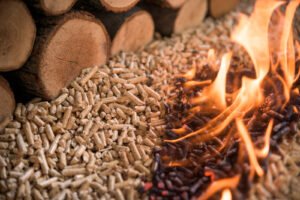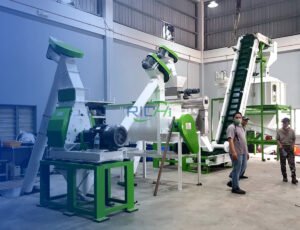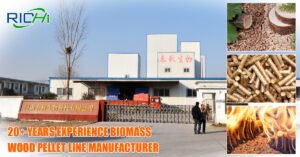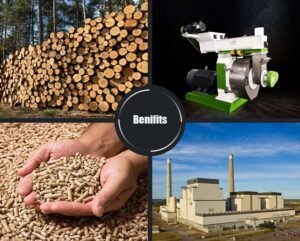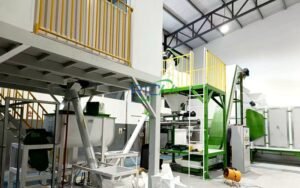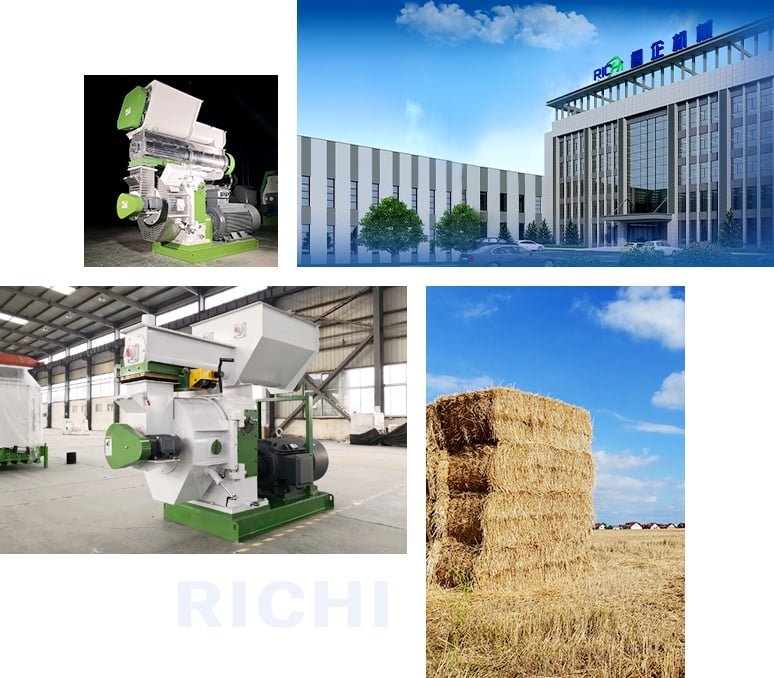
Introduction
As the demand for sustainable agricultural practices and renewable energy sources grows, grass pellet mills have become an essential piece of equipment for farmers, businesses, and energy producers alike. This article delves into the details of what a grass pellet mill is, its various uses, the technology behind it, and how to choose the right equipment and supplier. We will also explore how Richi Machinery, a leading manufacturer in the industry, offers customizable solutions to meet diverse customer needs.
What is a Grass Pellet Mill?
A RICHI grass pellet mill is a machine designed to compress various types of grass into dense, cylindrical pellets. These pellets serve multiple purposes across different industries, from providing a highly efficient form of animal feed to being used as a sustainable biofuel. The process of pelletizing grass not only makes storage and transportation easier but also enhances the grass’s usability and value.
Industry Applications of Grass Pellet Mills
Grass pellet mills have a wide range of applications in various industries, including:
- Animal Feed Plant: Grass pellets are a highly nutritious and easily digestible form of feed for livestock. They are particularly popular in cattle, sheep, and equine farming. The pellets’ compact form allows for easy storage and transportation, reducing feed costs and improving feed management.
- Renewable Energy Production: Grass pellets are increasingly used as a biofuel alternative to traditional fossil fuels. They can be burned in biomass boilers and stoves, providing a renewable and carbon-neutral energy source.
- Organic Fertilizer Plant: The pellets can be used as an organic fertilizer, enriching the soil with essential nutrients. This is particularly useful in organic farming practices where chemical fertilizers are avoided.
- Bedding Material: Grass pellets are also used as bedding for animals, providing a clean, absorbent, and comfortable environment for livestock.
Working Principles of Grass Pellet Mills
The working principle of a grass pellet mill involves several key steps, each crucial to the successful production of high-quality pellets: https://www.richimanufacture.com/grass-pellet-production-line/
- Material Preparation: The grass is first harvested and, if necessary, dried to reduce its moisture content. The ideal moisture level for pelletizing is between 10-15%. Overly wet grass can lead to poor pellet quality and production inefficiencies.
- Grinding: The dried grass is then ground into smaller particles using a grinder or hammer mill. This step ensures that the grass is of a consistent size, which is important for uniform pellet formation.
- Pelletizing: The ground grass is fed into the pellet mill, where it is compressed through a die under high pressure. The heat generated during this process causes the lignin in the grass to soften and bind the particles together, forming solid pellets.
- Cooling: Once the pellets are formed, they are hot and somewhat soft. A cooling system is used to bring them down to ambient temperature and harden them, making them suitable for storage and handling.
- Screening and Packaging: The cooled pellets are screened to remove any fines or broken pieces, ensuring a uniform product. The final pellets are then packaged for sale or use.
Classification of Grass Pellet Mills
Grass pellet mills can be classified based on their design, production capacity, and application:
- Flat Die Pellet Mills: These are typically used for small-scale production. They are easy to operate and maintain, making them ideal for farm use or small businesses.
- Ring Die Pellet Mills: Designed for large-scale production, ring die pellet mills are more efficient and durable. They are commonly used in commercial and industrial settings where high output is required.
- Horizontal and Vertical Pellet Mills: Depending on the orientation of the die, these mills offer different advantages. Horizontal mills are versatile and can handle a variety of materials, while vertical mills are particularly effective for processing materials with higher moisture content.
How to Choose the Right Grass Pellet Mill
Selecting the appropriate grass pellet mill requires careful consideration of several factors:
- Production Capacity: Assess your production needs to determine the capacity required. For instance, a small-scale operation may only need a flat die pellet mill, while a large commercial enterprise might require a high-capacity ring die mill.
- Material Characteristics: Different types of grass may require different types of pellet mills. For example, a mill designed for softer grasses may not perform well with tougher, fibrous varieties.
- Energy Efficiency: Consider the energy consumption of the mill. Energy-efficient models may have a higher upfront cost but can result in significant savings over time.
- Automation Level: Depending on the scale of your operation, you may prefer a more automated system to reduce labor costs and increase productivity.
Case Study: A commercial farm specializing in organic dairy production chose a customized ring die grass pellet mill from Richi Machinery. The mill’s high efficiency and low energy consumption allowed the farm to reduce feed costs by 20%, while also producing enough pellets to sell to neighboring farms, creating an additional revenue stream.
Choosing a Supplier: The Richi Machinery Advantage
Selecting the right supplier is crucial to ensuring that you receive high-quality equipment that meets your specific needs. Here’s why Richi Machinery stands out as a top choice:
- Customization Capabilities: Richi Machinery offers fully customizable pellet production lines. They design equipment and layout according to the specific needs and space constraints of the customer’s facility.
- Turnkey Solutions: Richi Machinery provides comprehensive turnkey solutions, from initial design and equipment manufacturing to installation, commissioning, and ongoing support.
- Advanced Technology: The company incorporates the latest technology in its machinery, ensuring high efficiency, reliability, and ease of operation.
- Experienced and Reputable: As the largest pellet production line manufacturer in Henan, China, Richi Machinery has built a strong reputation for delivering high-quality, durable machinery. Their extensive experience in the industry ensures that they can provide expert advice and solutions tailored to each customer’s needs.
Practical Application Value of Grass Pellet Mills
Grass pellet mills offer significant value across various applications. In agriculture, they provide a cost-effective and efficient way to produce high-quality feed, contributing to better livestock health and productivity. In the renewable energy sector, they offer a sustainable and eco-friendly alternative to fossil fuels. Additionally, grass pellet mills create opportunities for farmers to diversify their income by producing and selling pellets, thereby contributing to the overall economic development of rural areas.
FAQs About Grass Pellet Mills
Q1: Can any type of grass be used in a grass pellet mill? A1: Most types of grass can be pelletized, but the suitability depends on the specific characteristics of the grass, such as moisture content and fiber composition. It’s important to select the appropriate mill for the type of grass you plan to use.
Q2: How much space is required to set up a grass pellet mill production line? A2: The space requirement varies depending on the size and capacity of the production line. Richi Machinery can design a customized layout to optimize the available space at your facility.
Q3: What is the expected lifespan of a grass pellet mill? A3: With proper maintenance, a high-quality grass pellet mill can last for many years. Regular maintenance includes checking and replacing wear parts, such as dies and rollers, and keeping the machine clean and well-lubricated.
Q4: How does a grass pellet mill contribute to sustainability? A4: Grass pellet mills contribute to sustainability by converting a renewable resource into valuable products such as animal feed and biofuel, reducing reliance on non-renewable resources and minimizing environmental impact.
Q5: What kind of after-sales support can I expect from Richi Machinery? A5: Richi Machinery offers comprehensive after-sales support, including technical assistance, spare parts supply, and maintenance services, ensuring the longevity and optimal performance of your equipment.
Conclusion
Grass pellet mills are a vital tool in sustainable agriculture and renewable energy production. They provide an efficient and cost-effective way to convert grass into valuable products, offering significant benefits across various industries. When choosing a grass pellet mill, it’s essential to consider your specific needs, the characteristics of the grass being processed, and the capabilities of the equipment. Richi Machinery stands out as a leading supplier, offering customizable, turnkey solutions that cater to a wide range of customer requirements, ensuring optimal performance and satisfaction.
